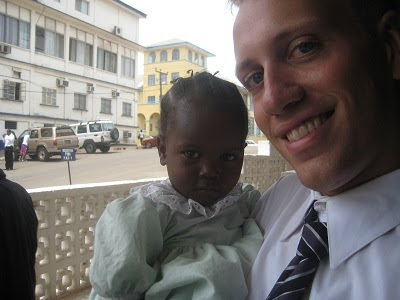Saturday, April 3, 2010
The Latest Events
Culture, Part 3: the Riveting Conclusion
The Japanese economist and development theorist Francis Fukuyama has plenty of thoughts on development, but one has always stood out to me. It’s that of ‘incentivization’. He basically states that we are all individuals, and as individuals we are prone to - and can be expected to - operate in our own best interests. To provide order, there must be proper incentives to encourage good behavior (and dissuade bad behavior). It’s the same methodology you use to train a pet. In America, we’ve lost sight of the systems in place which keep us mostly in line. The fine you pay for speeding, the time you serve for stealing, even the social pressure that keeps you from littering; instead we feel that we are simply more morally upright people than the rest of the world. But how did we get to the level of social capital, togetherness, and cooperation that we have now? After a lot of hard work, pain, suffering, fighting, and plenty of time.
And eventual economic prosperity. It’s much easier to be good when you’re already wealthy.
So Fukuyama’s incentives are not exactly present in Liberia. If you were to pay some kid with a wheelbarrow of large rocks to stand by the side of the road (with permission from the police), and ask him to chuck rocks in the direction of any windshield passing everyone else on the shoulder (*see last post on culture), you would find that cars would soon wait patiently in line. But that is not yet the case.
This is just one example though. This unchecked self-interest is present at many levels in Liberian society. How did it get that way? Well frankly, when political instability has made the economy grind to a halt, stop agricultural activities and generally prevent long-term thinking (especially when there are more immediate threats, like physical violence), it becomes much more understandable that individuals would care for themselves and their families basic necessities first before thinking of the good of the entire society.
Next, realize that 25 years is enough for entire generations to be habituated into this, having never experienced anything different. Had I been born in Liberia, my president would have been the dictator Samuel Doe. He would be killed in 1990 during a military coup. My formative years would have been spent during the harsh civil uprising when Charles Taylor fought for and gained power, and then fended off military warlords, with civilians caught in between. Would I have grown up to be the same person I am today?
Finally, add the obvious fact that it ranks second to last on the Human Development Index (HDI) which measures quality of life and poverty. Following the 25 years of political instability, Liberia has been hurting. The physical infrastructure was destroyed, roads were left unrepaired, businesses had to be rebuilt over and over again leaving the basic economic system very weak, the institutions which would make contracts enforceable absent, farmland is still present but the owners and workers had to flee during the war and many landowners now live in Monrovia, with the farming knowledge of the previous generation never having been passed down and put into practice.
Liberia, well suited for growing rice, imports it from around the world. In fact, it’s hard to find many products that have been produced locally. As I stop now, I can think of a few local vegetables and some of the rice, charcoal, cement blocks, bagged water, one brewery, a Coke plant, um… I’m sure there’s more, but you get the point. Everything else is shipped in via container ships, or ‘sea cans’.
But I digress. Anyways, is Liberia ‘developing’? Well, slowly. I’ve heard it said that it will take 100 years to rebuild what took only 25 to destroy. But, it is important to understand that Liberia is a post-conflict country, and needs to be given the benefit of the doubt. With all that in mind, I can go about my daily activities with a bit more humility, impressed with how far the country has in fact come since the 2005 elections.



